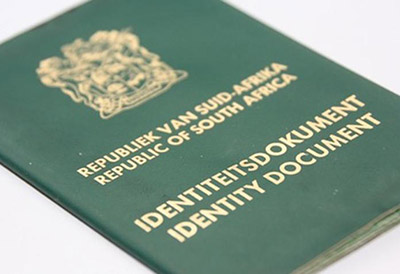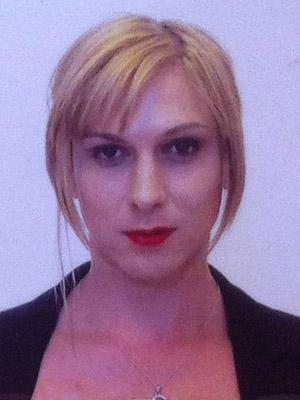South Africa: The State versus identity
 South African citizens can do almost nothing without an Identity Document (ID). People whose ID particulars do not match their gender identity, gender expression and ultimately who they are, face obstruction, regular ridicule and discrimination.
South African citizens can do almost nothing without an Identity Document (ID). People whose ID particulars do not match their gender identity, gender expression and ultimately who they are, face obstruction, regular ridicule and discrimination.
When the power of the state and the public sector control, rather than serve an individual’s most fundamental resource— their body— the consequences can be devastating.
South African law, through the Alteration of Sex Description and Sex Status Act (Act 49), affords people the right to change the sex description markers in their official documents. These markers include one’s name; the number included in everyone’s ID number that indicates sex; and the ‘male’ or ‘female’ category on one’s birth certificate.
On paper, it is an incredibly progressive piece of legislation allowing transgender people to apply to have their sex description amended if they have had surgical, or medical treatment; undergone gender reassignment; or they are intersex. However, like most laws and legislation, the challenge lies in implementing the law for its purpose.
On Thursday, 29 January in Cape Town, Gender DynamiX and the Legal Resources Centre launched a Briefing Paper on Act 49, which explores some of the struggles experienced by transgender and intersex people trying to use this piece of legislation.
The paper provides an overview and analysis of Act 49 as well as recommendations on how to improve the implementation of the Act 49.
At the launch, artist and photographer, Robert Hamblin, who has worked extensively with Gender DynamiX, explained that conditions for sex description amendment are problematic. Essentially, they require a person applying for the amendment of their official documents, to submit proof of hormone therapy or pending gender reassignment surgery.
Many applications are rejected unless proof of gender reassignment surgery is submitted, together with a letter from the doctor performing the surgery. Some couples are even forced to get divorced before documents are amended. Moreover, the waiting periods for amendments range from one to seven years.

Last year, Nadia Swanepoel had to go on a hunger strike to force Home Affairs to correct her ID book.
Such criteria imposed by Act 49 to qualify for gender alteration, not only contravene other equality laws such as South Africa’s Civil Union Act- legalising same-sex marriage, but also collapsing one’s identity into something defined solely by physicality- thus implying one’s identity is contingent on genitalia.
What about the people who do not want to undergo gender reassignment or who simply cannot afford it?
If one reads Act 49 literally, submitting proof, arguably, should not be necessary, and officials at the Department of Home Affairs (DHA) do not require proof to implement the Act and process applications. Unfortunately, reality does not match the progressive nature of the law.
It only takes one person at the DHA to refuse to amend the sex on a birth certificate or to change a name on an ID. This refusal and denial is a regular occurrence, especially for people without the resources to fight the state – the very people that the progressive provisions of Act 49 seek to protect.
Hamblin also read out some quotes received in letters addressed to Gender DynamiX from the DHA. These included questions like, “Does this person have a penis yet?”, “Does this person have tits (sic) yet?” or “Has this person removed their penis yet?” These attitudes smack of persistent prejudice, ignorance and a lack of empathy.
Hamblin went on to describe struggles faced by many people applying for the amendment of their official documents, and the host of problems encountered by those trying to assert their rights. To many transgender people, the details in their ID books hold immense power: they can mean the difference between their basic human rights being recognised or not. Incorrect details in their ID obstructs access to health, justice and many other social services.
”When I go to the clinic, I have to show my ID book. That piece of paper lies about me. It says that I am not a woman. That piece of paper is supposed to protect me. But it does not. Every time I have to go to the clinic to get my ARVs, I have to fight again,” read Hamblin from a person’s personal account.
Another story shared by Hamblin shows the life and death consequences to people constantly fighting for recognition and their constitutional rights. “Five men came to my house. They had heard about me. I was alone at home. They raped me. I had to go to the clinic and had to present my ID book. The nurse called me by my male name, loudly. This was humiliating. When my friend explained to the nurse that I needed Post Exposure Prophylaxis (PEPs), the nurse snorted and told me to take off my dress. I left without the PEPs. Today I am on ARVs.”
The Briefing Paper on Act 49 concludes that Act 49 has not been implemented in accordance with its own provisions, and consequently undermines its progressive potential and other national and international rights. The paper identifies gaps in the legislation and its implementation, calling for Amendments to Act 49 to ensure self-identification of gender; for the DHA to provide clear and broader directives on Act 49; and to ensure training of DHA personnel and unprejudiced implementation of the law.
This important paper is rooted in the everyday struggles faced by transgender and intersex people of South Africa. What people’s stories have in common, is the struggle being waged by individuals against the bureaucratic machinery of the state and the institutional violence it inflicts upon them. The stories speak not only of prejudice, oppression and hopelessness, but also of the bureaucratic space where paper meets flesh.
The state and the public sector must recognise how the changing of that single letter or name on official documents, can change a person’s life, and ultimately the ‘life’ of South Africa’s constitutional democracy.
This article is part of the Gender Links News Service, providing fresh views on everyday news.
The constitutional intention is clear. It’s the uneducated and sometimes bigoted people who are charged with implementing the law and don’t understand the law who are the problem. Bureaucrats’ ignorance affects everyone adversely.